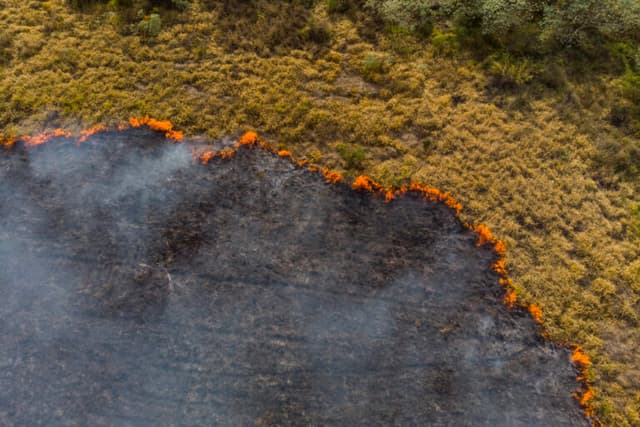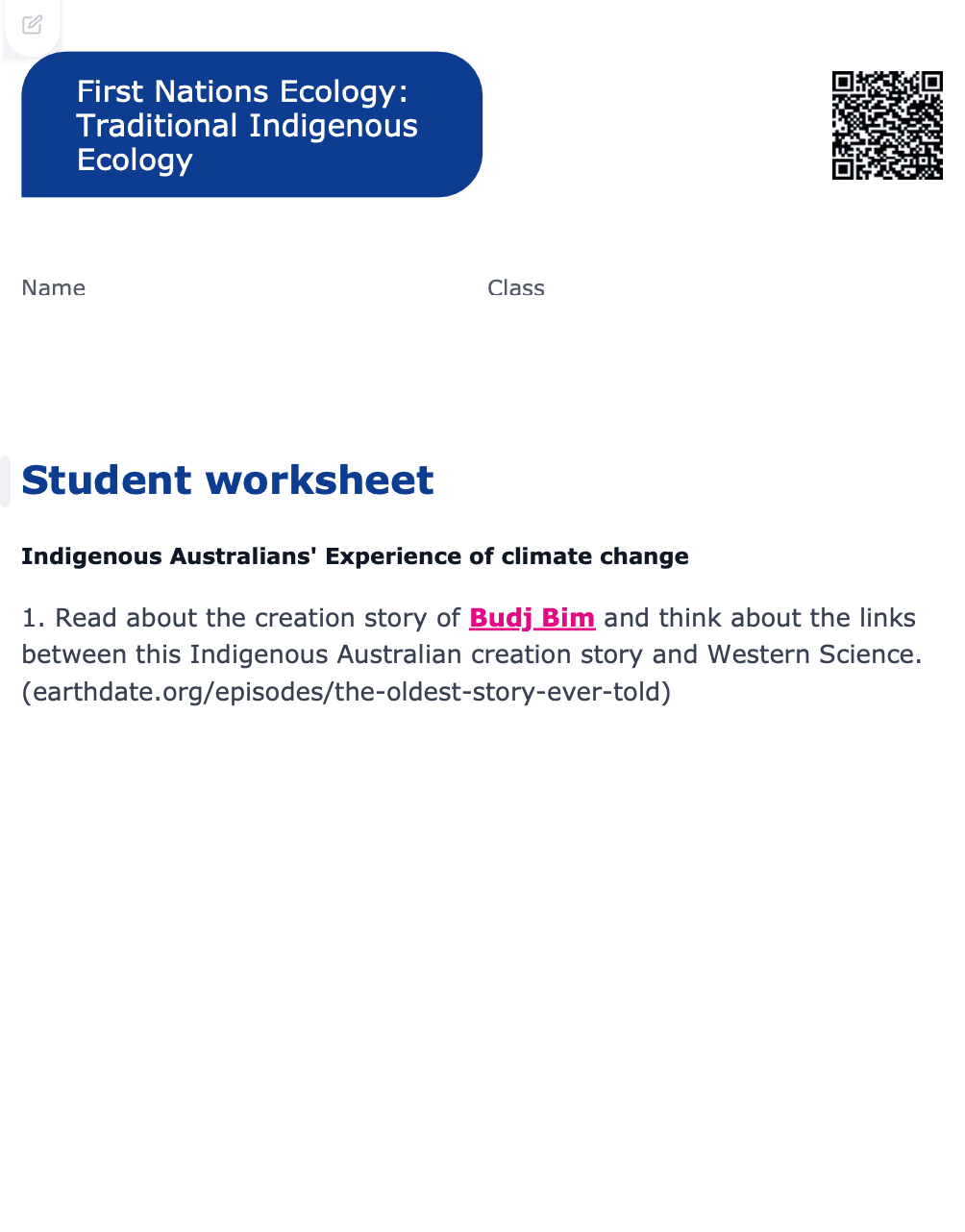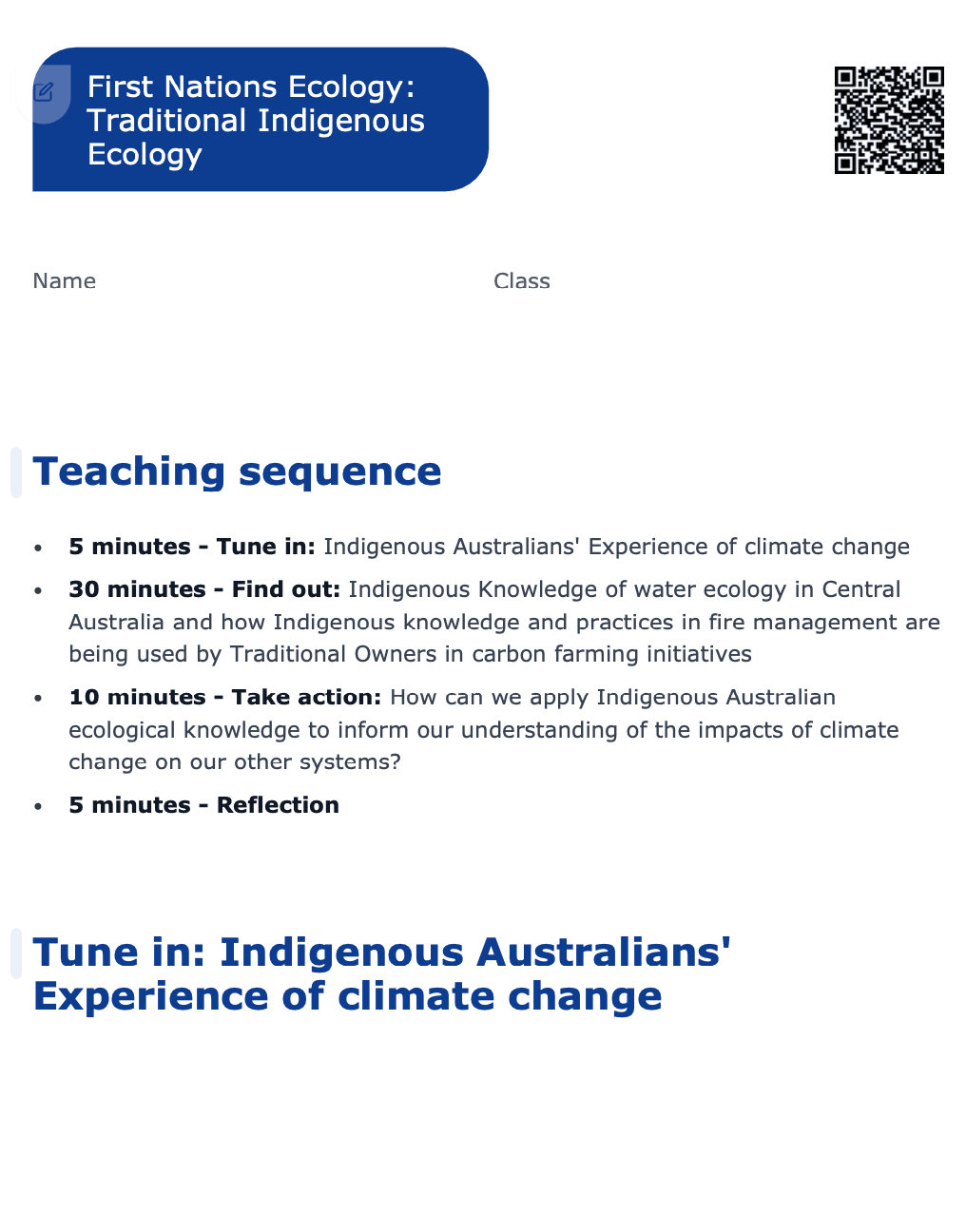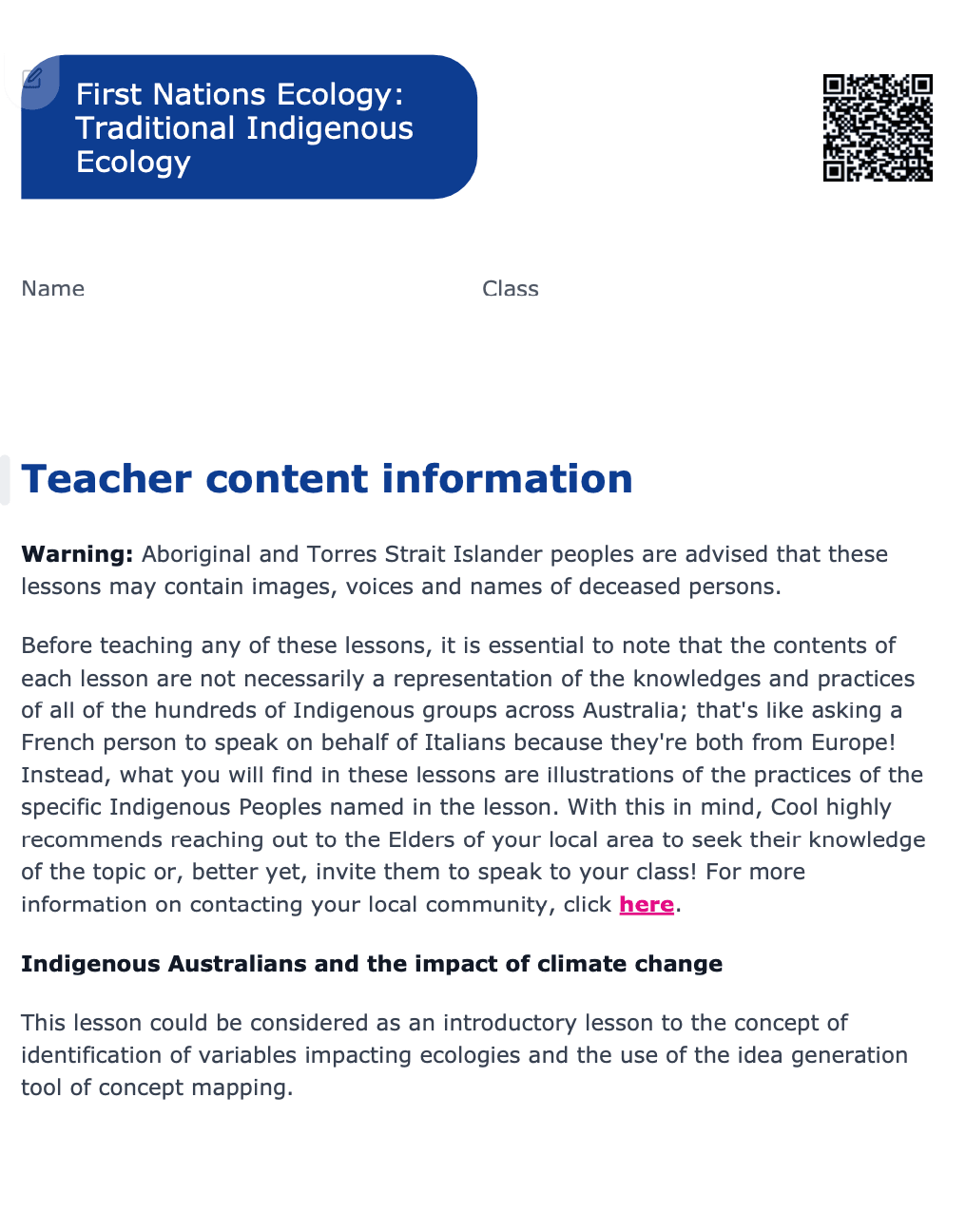
First Nations Ecology: Traditional Indigenous Ecology
Lesson6 of 8 in this unit
Cool+SecondaryYear 10ScienceHuman EndeavourHumanities and Social SciencesAboriginal and Torres Strait Islander Histories and CulturesSocialIndigenous Education
Summary
Lesson Guides and Printables
Student Worksheet

Lesson Plan

Teacher Content Info
